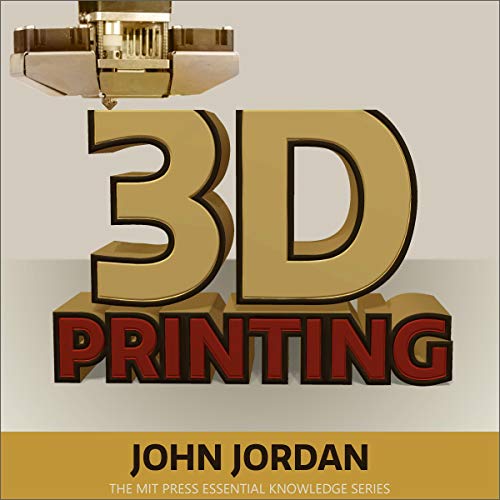-
3D Printing
Martin Gitlin
Library Binding (Cherry Lake Press, Aug. 1, 2019)Printing has come a long way thanks to technology, from printing words and images on a flat surface to recreating a life-size version of a car. In 3D Printing in the Disruptors in Tech series, readers will discover how 3D printing technology has disrupted major industries including health and architecture design. Series includes a table of contents, tech-forward sidebars, a timeline, glossary, index, and author biography. V
V
-
3D Printing
John M. Jordan, BJ Harrison, Gildan Media, LLC
detailsThe use of 3-D printing - digitally controlled additive manufacturing - is growing rapidly. Consumer models of 3-D printers allow people to fabricate small plastic objects, from cabinet knobs to wedding cake toppers. Industrial uses are becoming widespread, as businesses use the technology to fabricate prototypes, spare parts, custom-fitted prosthetics, and other plastic or metal items, often at lower cost and with greater efficiency than standard manufacturing. In this volume in the MIT Press Essential Knowledge series, John Jordan offers an accessible introduction to 3-D printing. Jordan outlines the stages of 3-D printing, from idea to software model to a printable file that slices the planned object into printable layers to the finished object itself. He describes additive technologies, consumer 3-D printing in homes and schools, mass customization, and industrial uses. He considers the possible unintended consequences of 3-D printing on jobs, as companies scramble to find employees with an uncommon skill set; on business models and supply chains, as manufacturing is decentralized; and on patent law, as machines can be programmed to copy protected property. Finally, Jordan looks at new and emerging uses, including bioprinting, building construction, and micromachines.
-
3D Printing
Martin Gitlin
Paperback (Cherry Lake Press, Aug. 1, 2019)Printing has come a long way thanks to technology, from printing words and images on a flat surface to recreating a life-size version of a car. In 3D Printing in the Disruptors in Tech series, readers will discover how 3D printing technology has disrupted major industries including health and architecture design. Series includes a table of contents, tech-forward sidebars, a timeline, glossary, index, and author biography. V
V
-
3D Printing
Martin Gitlin
eBook (Cherry Lake Press, Sept. 1, 2019)Printing has come a long way thanks to technology, from printing words and images on a flat surface to recreating a life-size version of a car. In 3D Printing in the Disruptors in Tech series, readers will discover how 3D printing technology has disrupted major industries including health and architecture design. Series includes a table of contents, tech-forward sidebars, a timeline, glossary, index, and author biography.
-
3d Printing
Tracy Abell
Library Binding (Weigl Pub Inc, Aug. 15, 2018)Did you know that 3D printed objects are printed in slices that are fused together? Each printed slice is about half the width of a human hair. Learn more about this innovative technology in 3D Printing, part of the 21st Century Technology series. This series takes young learners through the science behind some of the worlds most exciting technological innovations. O
O
-
3D Printing
John Perritano
eBook (Saddleback Educational Publishing, Jan. 17, 2018)3D printing has made some fascinating developments in recent years. It has been around since the 1980s, but technology has improved dramatically. Now, 3D printers are used in business, medicine, cooking, fashion, and more.Engage your most struggling readers in grades 4-7 with Red Rhino Nonfiction! This new series features high-interest topics in every content area. Visually appealing full-color photographs and illustrations, fun facts, and short chapters keep emerging readers focused. Written at a 1.5-1.9 readability level, these books include pre-reading comprehension questions and a 20-word glossary for comprehension support.